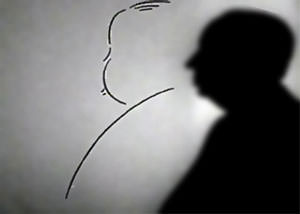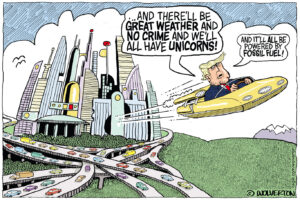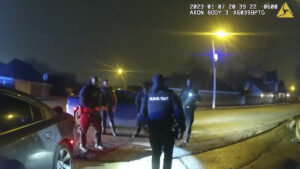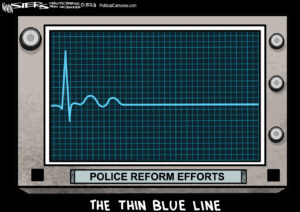This ‘Hitchcock’ Is Frightfully Off
He was never dark or monstrous as this film makes him seem Rather the opposite There was something -- well -- childlike about him There was something—well—childlike about him.
On an idle afternoon — of which there were many, as Alfred Hitchcock searched for his next project — the director liked to plan imaginary train trips. He would seat himself behind his vast desk, haul out his collection of European train schedules and figure out ways of getting from, say, Istanbul to Oslo, with perhaps a stopover in Budapest, in the most efficient way. He liked to cut these journeys close and, as you can imagine, projecting from his films, he liked to keep them intricate. It is perhaps unnecessary to say that this rather harmless and childlike side of the great director is not much on display in Sacha Gervasi’s “Hitchcock.” Neither is the somewhat perverse side that has been fairly widely imputed to him.
The movie is mostly concerned with the filming of “Psycho,” which it insists his studio (Paramount) didn’t much want to make, and with his mooning rather inconclusively and innocently over the film’s star, Janet Leigh. At its most successful, the movie about the movie reveals Hitchcock’s complicated relationship with his wife Alma, his frequent collaborator and boon companion. Anthony Hopkins, fat suit and all, is a ponderous Hitchcock. Helen Mirren is a delightful Alma — perky, loyal and loving and more unto Hitch than perhaps she dares admit. The film is alive and, shall we say, full of pep, when she’s high-stepping her way through it.
I never met Alma, so I cannot say whether hers is a biographically accurate portrayal, but in its own terms it is smart and fun. I did know Hitch and I can say that this impersonation of him (it is scarcely a characterization) is all wet. I met him shortly after he released “Frenzy” in 1972 — a modest and well-received minor comeback for him –when I made a documentary about the director (my first) and wrote an article about him, to which he took a shine. In the years before his death in 1980, when I happened to be in Los Angeles, I would join him for lunch in his office (steak or fish) and we would talk lengthily about movies. When he made “Family Plot” in 1976, he asked me to do a Q and A session with the press, which went well enough. We were hardly intimate, but we got along amiably.
He was, to begin with, the only denizen of the Universal lot who was served lunch in his office. Even Lew Wasserman dined in the commissary, but he saw to it that Hitch never had to leave his nicely appointed den for such mundanities. He had been Hitch’s agent for decades — long before Wasserman brought Hitch to Universal — and I guess he understood him to be an artist who needed a protective arm thrown about him. Their relationship was, incidentally, far more intimate and instinctive than this movie makes it out to be. I have no idea what they may have talked about, but never a cross word was spoken by Hitch about the all-powerful mogul.
I do know what we discussed, though, and it was always film. Unlike many directors, Hitch loved to talk about the details of moviemaking — the problems of the trade, the solutions he arrived at, the ideas he still wanted to try, and he was never less than brilliant about any of that. He was an insinuating instructor and, in me, he had a willing pupil.
He was not particularly witty, but he was never dark or monstrous as this film makes him seem. Rather the opposite. There was something — well — childlike about him. Or maybe “unworldly” is a better word. There was distance in him, which, of course, accounts for the voyeurism that overtook him in his later years, which had the effect of frightening women. I think we have to stipulate that and mark it against him, as this movie does.
Occasionally, his mask slipped, even with me. You didn’t, for example, want to get him started on the subject of blondes, a topic to which he could sometimes turn when discussing sequences he wanted to do, but had not yet managed. I don’t think he was particularly dangerous — he was not, after all, psychotic — and he was not willing to risk all he had achieved (including the macabre image that the public so delighted in). I remember an afternoon, after lunch, when we were chatting along in a particularly relaxed manner. He slipped suddenly into a reflection on women that was anything but, shall we say, “guy talk.” It was, quite frankly, embarrassing. Not creepy, but definitely disconcerting.
Or, as I finally came to think, childish. He was suddenly a 12-year-old speculating about things of which he knew nothing. And perhaps never would. The moment passed quickly. We adjusted our clothing, so to speak. The topic never arose again.
Put the matter simply: Hitchcock was complicated. In his work, he was, much of the time, as sophisticated as anyone who ever directed popular films. In his life, he was as I observed him, unknown, even — or perhaps especially — to himself. He has to be preserved as an enigma. Or, at the very least, rescued from the vulgarity of movies like “Hitchcock,” where he appears as a heavy-handed travesty of himself. He’s better than that — one of those people we will never “know,” but one we will also need to reckon with if we care about movies. I remain happy to have shared a few afternoons with this auteur. He gave me a part of my career. Better still, he gave me a little part of who I am today.
Your support matters…Independent journalism is under threat and overshadowed by heavily funded mainstream media.
You can help level the playing field. Become a member.
Your tax-deductible contribution keeps us digging beneath the headlines to give you thought-provoking, investigative reporting and analysis that unearths what's really happening- without compromise.
Give today to support our courageous, independent journalists.






You need to be a supporter to comment.
There are currently no responses to this article.
Be the first to respond.